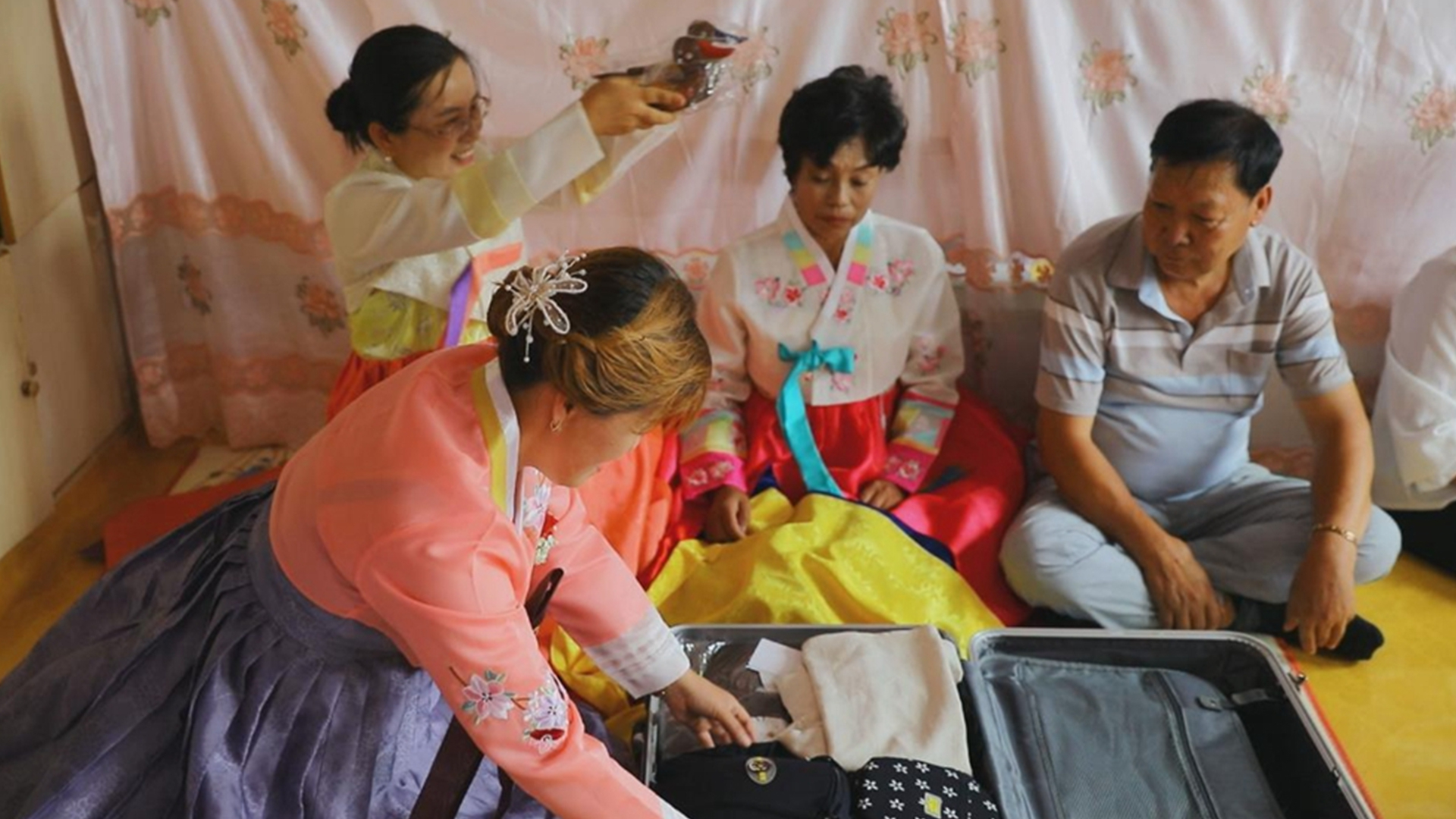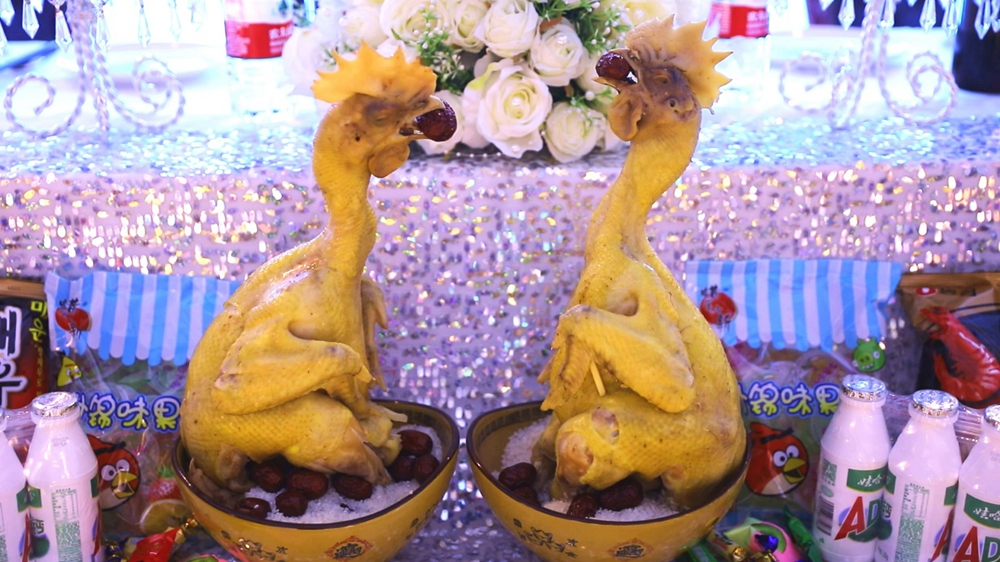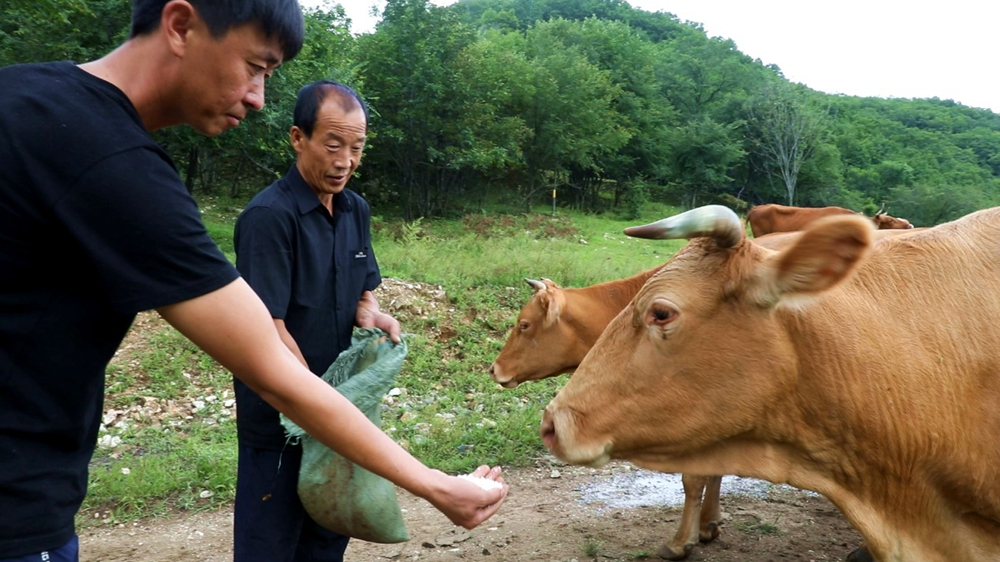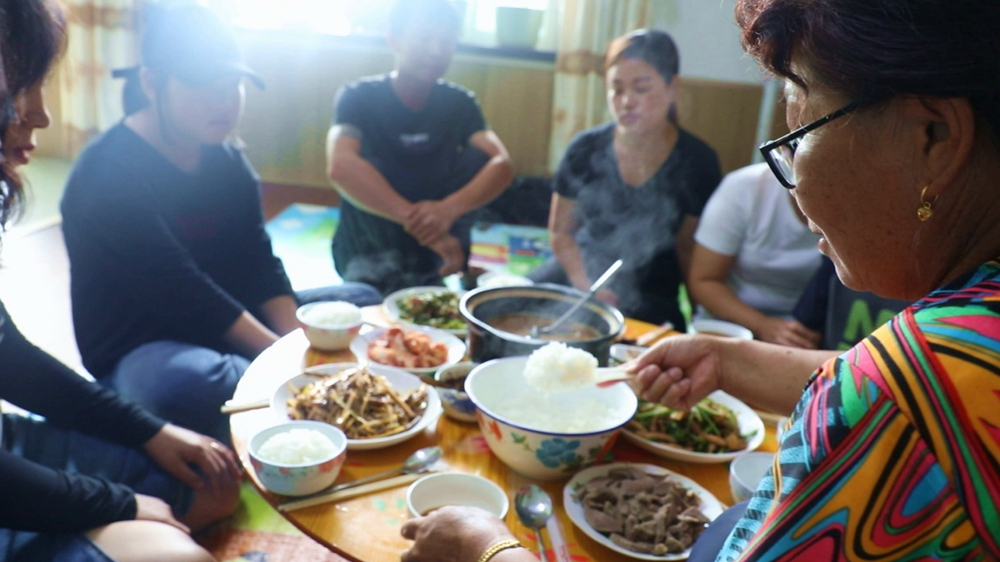

Nearly half of the members of China's ethnic Korean group live in the Yanbian Korean Autonomous Prefecture in northeastern Jilin Province. The area sits near China's border with the Democratic People's Republic of Korea.
Jin Donglong's family has lived in the village Jindalai in Yanbian for generations. The family now has seven people -- the Jin couple, their two sons, two daughters-in-law and a grandson.
Jin's younger son just got married. On their wedding day, the groom brought a pair of wooden geese to the bride's home, symbolizing an eternal union. While the bride filled a bag with rice, which means she will be a good wife, and make meals for the new family.

Two cooked chicken are set in bowls on the wedding banquet for an ethnic Korean couple in the Yanbian Korean Autonomous Prefecture in northeast China's Jilin Province. /CGTN Photo
The wedding banquet also saw a pair of roosters with red dates in their mouths symbolizing hopes for a baby. Many of their family members did a Korean dance at the wedding party, which the Korean ethnic group enjoys very much.
Unlike many other young people in the village who have gone outside to work, the Jin brothers chose to stay home and offer a hand to their father's farming business.
"My two sons learned to plough the land at the age of 15. They are really good at farming. When they grew up, instead of working elsewhere, they decided to stay here to help us," said Jin.

Jin Donglong (R) and his elder son Jin Mingzhe (L) feeding their cattle. /CGTN Photo
With the help of their two sons, Jin's farming business has expanded. His farmland is now 440,000 square meters or 44 hectares, and they've raised upwards of 80 cattle. These have brought the family an annual income of some 300,000 yuan (about 42,000 U.S. dollars).
Wu Xin'ai is Jin's elder daughter. "Life here has changed a lot. We've earned much more than before," said Wu. She feels so happy that they can stay home and work together, "I think the most important thing is that the family gets along with each other harmoniously."

Jin Donglong's wife is filling bowls with steamed rice for members of the family. /CGTN Photo
In traditional Korean culture, daughters-in-law cook for the family. Thick soy bean soup, pickled spicy cabbage and fried fish are some of the common dishes. Sitting around the table and eating their favorite foods are some of the happiest moments in their lives.
In 2010, local villagers were relocated to the new Jin Da Lai village after their homes were destroyed in a flood. Now the village has been renovated beautifully and welcomes tourists to visit.
The average annual income of villagers is four times what it was a decade ago. And the charming village beckons more people to visit, or maybe even call it home.

Copyright © 2018 CGTN. Beijing ICP prepared NO.16065310-3
Copyright © 2018 CGTN. Beijing ICP prepared NO.16065310-3